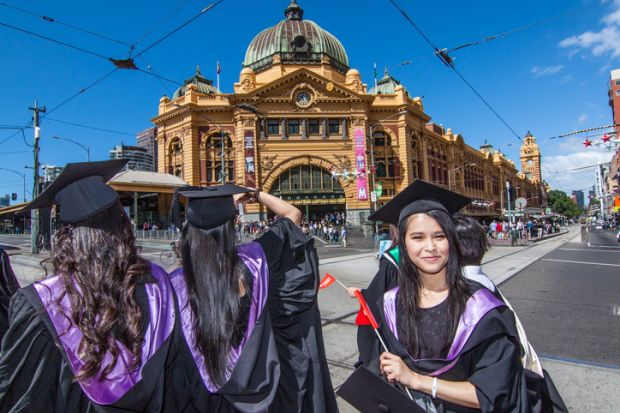Ratification of a global agreement on the recognition of qualifications will create “new opportunities” for Australian universities to expand their operations overseas, vice-chancellors said.
The Canberra government said it had signed up to the Global Convention on the Recognition of Qualifications concerning Higher Education, operated by the United Nations Educational, Scientific and Cultural Organisation.
This will see Australia share more information internationally about its quality frameworks, educational institutions and qualifications. The aim is to improve trust in credentials awarded by the country’s universities while supporting the development of more diverse forms of learning, including joint degrees, microcredentials and offshore delivery.
Jason Clare, Australia’s education minister, said that ratification of the convention was “a significant education milestone”.
“The 1.4 million students who study at our universities each year can now have even greater confidence that their Australian qualification, whether undertaken onshore, offshore or online, will be recognised in other countries, helping them to access higher education abroad, as well as pursue greater employment opportunities,” the minister said.
Universities Australia said it welcomed the government’s “focus on boosting recognition of, and providing greater opportunities for, Australia’s universities and our students”.
“In a changing world, we need more university-educated students, not fewer, to drive us forward, safely and successfully,” said acting chief executive Peter Chesworth.
“Students from over 144 countries choose to study at Australia’s world-class universities, and this agreement ensures they can take their education, skills and knowledge anywhere, contributing to the development of new relationships and building understanding between nations.
“It also creates new opportunities for Australia’s universities to expand their operations overseas and contribute even more to the global challenge of educating more people around the world.”
The qualifications framework was adopted by Unesco in 2019, as part of efforts to support the UN’s Sustainable Development Goals, which seek to ensure “equal access for all women and men to affordable and quality technical, vocational and tertiary education, including university”, by 2030.
One hope for the initiative is that it will assist refugees who want to access higher education or who find that their qualifications are not recognised by employers.
Register to continue
Why register?
- Registration is free and only takes a moment
- Once registered, you can read 3 articles a month
- Sign up for our newsletter
Subscribe
Or subscribe for unlimited access to:
- Unlimited access to news, views, insights & reviews
- Digital editions
- Digital access to THE’s university and college rankings analysis
Already registered or a current subscriber? Login








